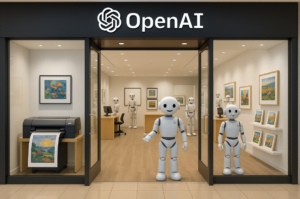Wikipedia Unveils New AI Strategy

Enhancing Wikipedia’s Editing Process with AI
Wikipedia, one of the largest and most comprehensive information resources on the internet, has decided to incorporate artificial intelligence (AI) into its editing platform. The Wikimedia Foundation, which operates Wikipedia, announced this development to help support its dedicated group of volunteer editors and moderators. Rather than replacing humans, the goal of this integration is to enhance their capabilities and ease their workloads.
AI’s Role in Wikipedia Editing
In a recent statement, Chris Albon, the Director of Machine Learning at the Wikimedia Foundation, clarified the intended use of AI within Wikipedia’s editing framework. The focus is on utilizing AI to tackle specific, tedious tasks that often slow down the work of volunteer editors. By addressing these technical challenges, the foundation hopes to enable editors to dedicate more time to improving content quality and engaging in meaningful deliberation rather than getting bogged down by routine responsibilities.
Key tasks AI aims to assist with include:
- Background Research: Streamlining the process of gathering information.
- Translation: Expediting the translation of articles to make content accessible in multiple languages.
- Onboarding New Volunteers: Simplifying the training process for new editors to get them up to speed faster.
This strategy is designed with a clear focus on maintaining human involvement in content creation and moderation. The approach emphasizes transparency, the use of open-source AI technologies, and a nuanced understanding of multilingual needs.
Addressing Challenges of Content Growth
One of the pressing challenges Wikipedia faces is the exponential increase in information available on the internet. The current number of active volunteers falls short in keeping pace with the vast amount of content that requires moderation. As the landscape evolves, there are growing concerns that AI could overwhelm the platform, particularly with the rise of AI bots that scrape Wikipedia for data.
In response to this challenge, the Wikimedia Foundation announced an initiative to develop an open-access dataset of "structured Wikipedia content." This dataset aims to optimize Wikipedia data for machine learning applications, helping to curb the excessive bot traffic that has started to strain the foundation’s servers. Reports indicate that bot traffic has surged, increasing bandwidth consumption significantly—by 50% in some instances.
The Human-Centric Approach
Albon stressed the foundation’s commitment to a human-centered approach in their AI strategy. This means that while AI will play a role in assisting editors, it will not take over the editing process or generate content for Wikipedia. The priority remains on empowering human editors to refine and improve the vast amounts of information on the platform.
This initiative reflects a broader trend in various industries, where AI is increasingly integrated to support human workers rather than replace them. For Wikipedia, the incorporation of AI harnesses the potential of technology to enhance efficiency while ensuring the quality and reliability of its content remain intact.
Future Implications
As AI technology continues to evolve, it is clear that Wikipedia will need to adapt to the ongoing changes in the digital landscape. The blending of AI tools with human editorial oversight suggests a promising future where AI supports rather than supplants human contributions. This strategic use of technology aims to preserve the integrity of one of the most important knowledge resources available, ensuring that it remains accessible and useful for users worldwide.
By striking a balance between technological assistance and human input, Wikipedia hopes to sustain its mission of providing freely accessible, reliable information to a global audience.






